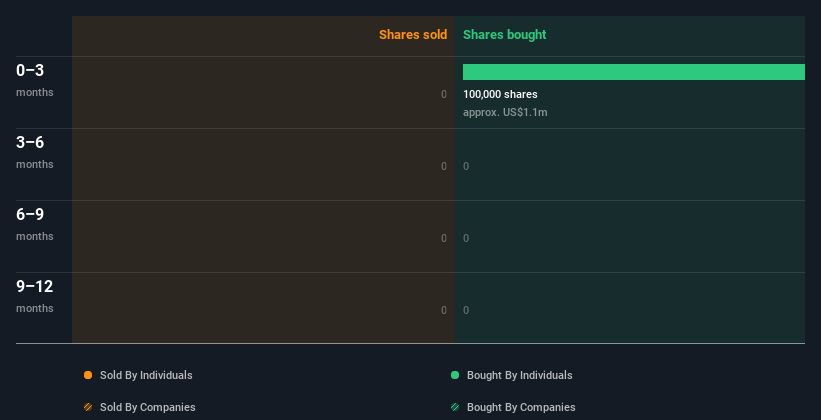Insiders might want to re-evaluate their US$1.1m stock purchase as Redfin Corporation (NASDAQ:RDFN) drops to US$1.0b
Insiders who acquired US$1.1m worth of Redfin Corporation's (NASDAQ:RDFN) stock at an average price of US$10.54 in the past 12 months may be dismayed by the recent 16% price decline. Insiders buy with the expectation to see their investments rise in value over a period of time. However, recent losses have rendered their above investment worth US$939k which is not ideal.
While insider transactions are not the most important thing when it comes to long-term investing, logic dictates you should pay some attention to whether insiders are buying or selling shares.
View our latest analysis for Redfin
Redfin Insider Transactions Over The Last Year
Over the last year, we can see that the biggest insider purchase was by Independent Director Bradley Singer for US$560k worth of shares, at about US$11.20 per share. That means that even when the share price was higher than US$9.39 (the recent price), an insider wanted to purchase shares. While their view may have changed since the purchase was made, this does at least suggest they have had confidence in the company's future. To us, it's very important to consider the price insiders pay for shares. Generally speaking, it catches our eye when insiders have purchased shares at above current prices, as it suggests they believed the shares were worth buying, even at a higher price.
While Redfin insiders bought shares during the last year, they didn't sell. The chart below shows insider transactions (by companies and individuals) over the last year. If you want to know exactly who sold, for how much, and when, simply click on the graph below!
There are plenty of other companies that have insiders buying up shares. You probably do not want to miss this free list of growing companies that insiders are buying.
Insiders at Redfin Have Bought Stock Recently
Over the last quarter, Redfin insiders have spent a meaningful amount on shares. In total, insiders bought US$1.1m worth of shares in that time, and we didn't record any sales whatsoever. This makes one think the business has some good points.
Insider Ownership
I like to look at how many shares insiders own in a company, to help inform my view of how aligned they are with insiders. A high insider ownership often makes company leadership more mindful of shareholder interests. It appears that Redfin insiders own 3.5% of the company, worth about US$35m. While this is a strong but not outstanding level of insider ownership, it's enough to indicate some alignment between management and smaller shareholders.
What Might The Insider Transactions At Redfin Tell Us?
It's certainly positive to see the recent insider purchases. And an analysis of the transactions over the last year also gives us confidence. However, we note that the company didn't make a profit over the last twelve months, which makes us cautious. Given that insiders also own a fair bit of Redfin we think they are probably pretty confident of a bright future. While we like knowing what's going on with the insider's ownership and transactions, we make sure to also consider what risks are facing a stock before making any investment decision. At Simply Wall St, we found 3 warning signs for Redfin that deserve your attention before buying any shares.
If you would prefer to check out another company -- one with potentially superior financials -- then do not miss this free list of interesting companies, that have HIGH return on equity and low debt.
For the purposes of this article, insiders are those individuals who report their transactions to the relevant regulatory body. We currently account for open market transactions and private dispositions, but not derivative transactions.
Have feedback on this article? Concerned about the content? Get in touch with us directly. Alternatively, email editorial-team (at) simplywallst.com.
This article by Simply Wall St is general in nature. We provide commentary based on historical data and analyst forecasts only using an unbiased methodology and our articles are not intended to be financial advice. It does not constitute a recommendation to buy or sell any stock, and does not take account of your objectives, or your financial situation. We aim to bring you long-term focused analysis driven by fundamental data. Note that our analysis may not factor in the latest price-sensitive company announcements or qualitative material. Simply Wall St has no position in any stocks mentioned.

